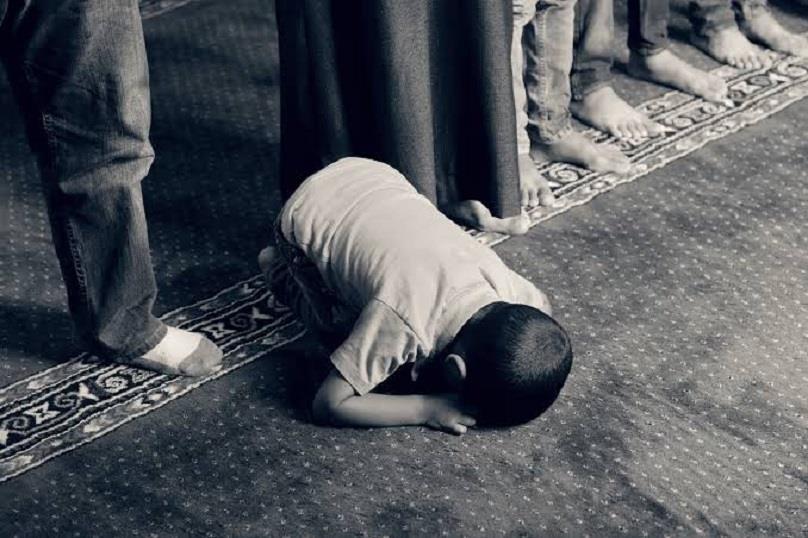
Compassion In Action: The Role Of Islam In Modern Social Work
Representational Photo
By Zahid Ahmad Lone
In our fast-paced, technologically driven world, the principles of compassion and empathy remain vital to maintaining social harmony. Social work, as a profession, embodies these values, focusing on alleviating human suffering and promoting social justice. Among the various influences shaping modern social work, Islam stands out, deeply rooted in compassion, charity, and justice. Islamic teachings emphasize compassion (rahma), social justice ('adl), and charity (sadaqah and zakat). These are not just spiritual guidelines but practical directives for societal conduct. The Quran and Hadith, the primary sources of Islamic teachings, repeatedly stress the importance of helping those in need, protecting the vulnerable, and fostering a just society. The Quran states,“And they give food in spite of love for it to the needy, the orphan, and the captive, [saying], 'We feed you only for the countenance of Allah. We wish not from you reward or gratitude'” (Quran 76:8-9). This verse encapsulates the essence of altruism and selflessness that Islam advocates, aligning closely with the ethos of social work.
ADVERTISEMENTOne significant way Islam institutionalizes compassion is through zakat, an obligatory form of charity. Every Muslim is required to give a portion of their wealth to those in need, typically amounting to 2.5% of their savings annually. This practice ensures a systematic redistribution of wealth, aiming to reduce economic disparities and support the underprivileged. In modern social work, the principles of zakat manifest in initiatives aimed at poverty alleviation, community development, and financial inclusion. Many Islamic organizations operate welfare programs funded by zakat to provide education, healthcare, and housing to marginalized communities, meeting immediate needs and empowering individuals to improve their socio-economic status sustainably. Mental health is another critical area where Islamic principles significantly contribute to social work. Islamic teachings advocate for holistic well-being, encompassing physical, emotional, and spiritual health. Counseling services that incorporate Islamic perspectives often address the stigma associated with mental health in many Muslim communities. Islamic counseling integrates spiritual guidance with therapeutic techniques, offering a comprehensive approach to mental health. Social workers in this field utilize Islamic concepts of patience (sabr), trust in God (tawakkul), and communal support to help individuals cope with stress, anxiety, and depression, providing culturally relevant care that reinforces the individual's faith as a source of strength and resilience.
Islamic teachings strongly advocate for social justice and human rights protection. The Quranic verse,“O you who have believed, be persistently standing firm for Allah, witnesses in justice, and do not let the hatred of a people prevent you from being just. Be just; that is nearer to righteousness” (Quran 5:8), underscores the importance of justice and fairness. Modern social workers, inspired by these principles, engage in advocacy and policy-making to address systemic injustices. Whether fighting against discrimination, promoting gender equality, or ensuring access to education and healthcare, these efforts reflect the Islamic mandate to uphold justice and dignity for all individuals.
To fully harness the benefits of Islamic values in social work, integrating these principles into social work education is essential. Universities and training institutions recognize the importance of religious and cultural competencies in their curricula. By including Islamic perspectives on social justice, charity, and compassion, these programs better prepare social workers to serve diverse populations. Courses on Islamic social work principles can cover topics such as the historical context of Islamic charitable practices, the theological foundations of social justice in Islam, and contemporary applications in social services. Additionally, training on culturally competent communication and intervention strategies can enhance social workers' ability to engage effectively with Muslim clients.
Read Also Justice Tashi Praises Child Care Institutions' Service Bridging the Gap: The Crucial Role of Education in Social JusticeThe future of Islamic social work holds significant promise. As the global Muslim population grows, the demand for culturally competent social services will increase. Innovations in social work practice, informed by Islamic principles, can lead to more effective and compassionate interventions. Technology also plays a crucial role in this evolution. Online platforms and mobile applications can expand the reach of social services, making it easier for individuals to access support. Virtual counselling, telehealth services, and digital educational resources can bridge gaps in service delivery, particularly in underserved areas. On-going research and scholarship in Islamic social work can further refine and validate practices. By documenting successful interventions and developing evidence-based models, scholars can contribute to a deeper understanding of how Islamic values enhance social work, informing policy-making, program development, and educational curricula.
Thus, the integration of Islamic values into modern social work represents a powerful confluence of faith and practice. Through the principles of compassion, charity, and social justice, Islam offers profound insights and directives that align with the core objectives of social work. By embracing these values, social workers can provide more effective, culturally sensitive, and spiritually enriching support to those in need.
As we navigate the complexities of contemporary society, the timeless teachings of Islam offer a guiding light for social workers committed to making a positive difference. Whether through zakat and sadaqah, holistic mental health care, or interfaith collaboration, the role of Islam in social work exemplifies the transformative power of compassion in action. This synergy not only uplifts individuals and communities but also contributes to a more just and harmonious world for all.
-
The author is Ph.D Scholar University of Kashmir

Legal Disclaimer:
MENAFN provides the
information “as is” without warranty of any kind. We do not accept
any responsibility or liability for the accuracy, content, images,
videos, licenses, completeness, legality, or reliability of the information
contained in this article. If you have any complaints or copyright
issues related to this article, kindly contact the provider above.


















Comments
No comment